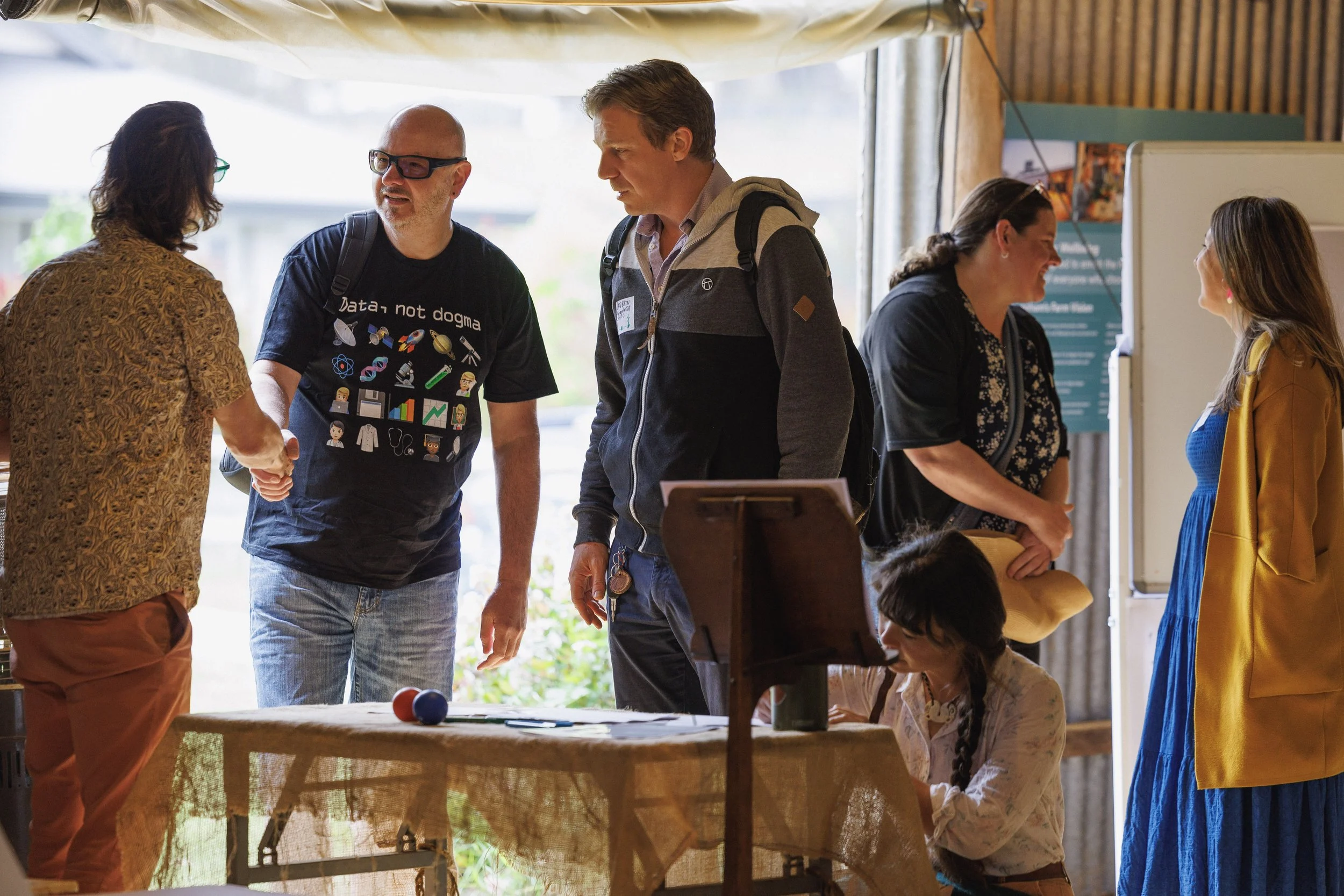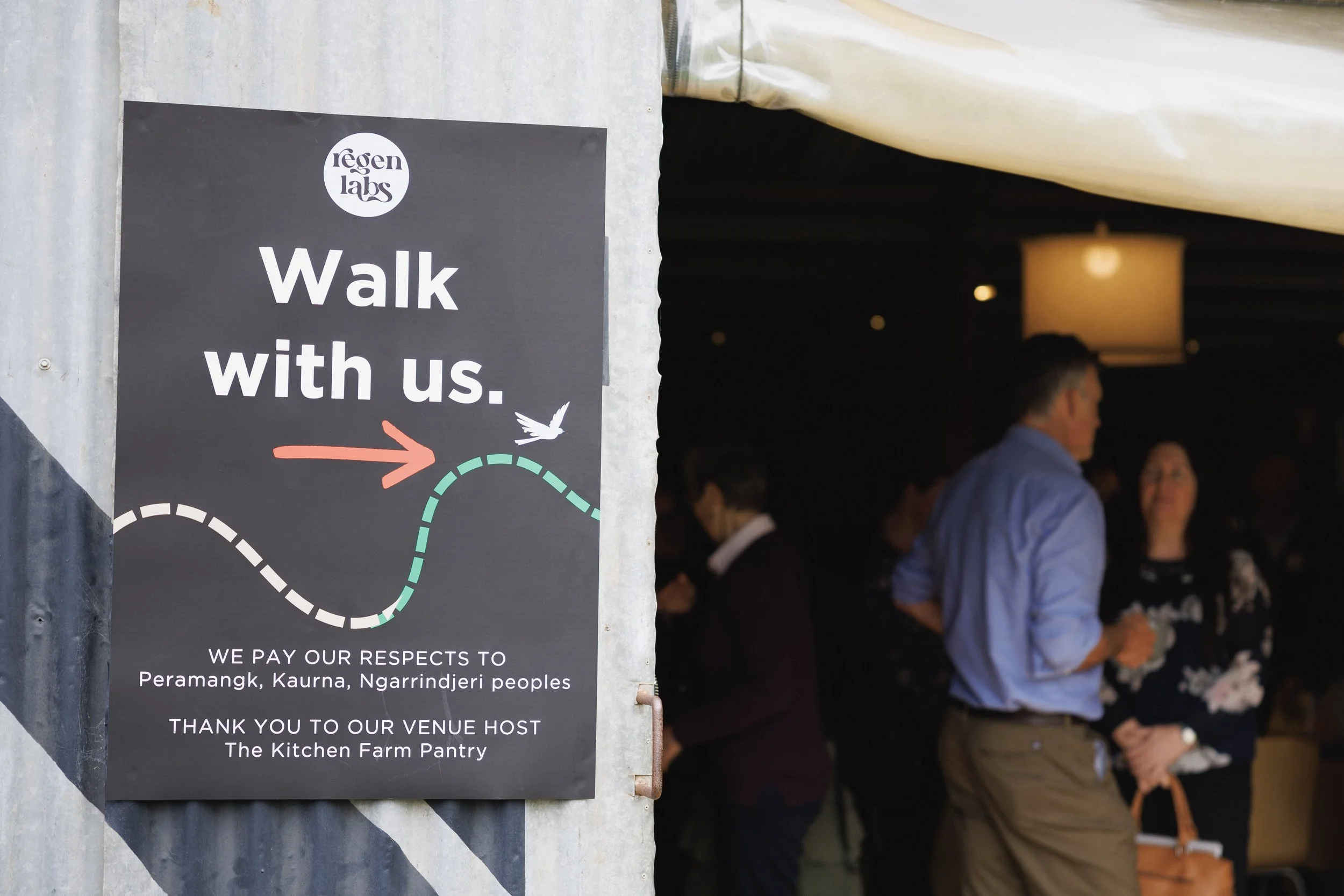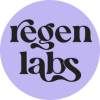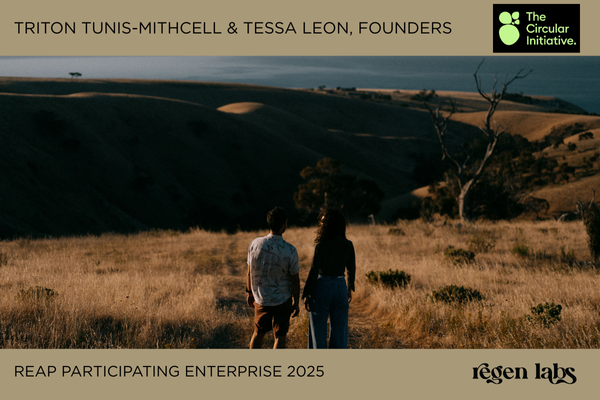REGENERATIVE ECONOMY ACTIVATOR PROGRAM
A 9-week growth program for entrepreneurs regenerating the Adelaide Hills and Southern Coasts region (Jul-Oct 2025)
APPLICATIONS ARE CLOSED

We pay our respects to Peramangk, Kaurna, and Ngarrindjeri people and elders, past and present. We sincerely appreciate the opportunity to work with Aboriginal entrepreneurs on Country.
What is the Regen Economy Activator Program?
The Regen Economy Activator Program (REAP) is a 9-week program designed for enterprises in the Adelaide Hills and Southern Coasts. It includes a combination of in-person, virtual and self-paced learning and collaboration.
The REAP brings together a cohort of passionate enterprise leaders from this region who want to collaborate for greater impact across social, economic, cultural and ecological realms. We are ready to help these local leaders to grow their capabilities, their revenue and their impact.
Program focus
Together we can:
identify the potential, needs and opportunities of this region
create local meaningful employment for people living with disability and mental illness
increase climate resilience and viability of the local food system
regenerate degraded landscapes and habitat for threatened species.
Program features
The REAP includes:
world-class enterprise development modules
identifying where you fit in the region’s enterprise map
wellbeing support and insights on inclusive workplaces
shared learning and collaboration with brilliant enterprises in regional leadership
opportunities to increase your enterprise’s impact
guidance from experienced leaders in social enterprise, finance and regeneration
networking with ecosystem partners, including government, business, community development and philanthropy
connection with investment and catalytic finance opportunities through Regen Labs’ forthcoming Regen Community Investment Fund (coming soon)

Who is this program for?
The REAP is tailored for a cohort of enterprises seeking to regenerate the Adelaide Hills and Southern Coasts region of South Australia. We are seeking entrepreneurs who are passionate about the region and the opportunities of the regenerative economy.
The eligibility criteria are:
Your enterprise operates in or near Adelaide Hills, Fleurieu Peninsula and Kangaroo Island on Peramangk, Kaurna and Ngarrindjeri Country
You’re passionate about leading an enterprise that is creating social, environmental, cultural and economic impact for your region
You’re an existing business looking to scale impact in terms of strengthening the local economy, social outcomes, and environmental conditions of the region
You’ve been trading for at least 12 months, and have an annual trading revenue of greater than $25K.
You are willing to share what you have learned as a participating enterprise to improve this program for future cohorts
You’re an enterprise leader motivated to collaborate for greater viability, resource sharing, and impact
REAP Cohort #1
From July-October 2025, a cohort of 13 enterprises are bringing their passion, skills and focus together for our first Regenerative Economy Activator Program, launched in the Hills and southern coasts region of South Australia.
SEE OUR GALLERY BELOW>>>

What are the benefits?
✔ Four masterclasses & peer learning sessions with specialist advisors
✔ Access to the Business for Good Network Changemakers Hub
✔ Enterprise profile hosted on Regen Labs’ website
✔ Connections with local enterprises, networks and partners
*Exclusions. The program does not currently include tailored business advisory services or 1:1 mentoring for each enterprise. We are identifying additional funding for this aspect of the program.

REAP Foundation Modules
1. Foundations of regenerative enterprise
-
Regenerative enterprises work to catalyse the shift to an economy that works to heal our social, ecological and economic challenges. Delivered by Regen Labs and partners
What do we cover in this Module?
Principles of place-based regeneration and regenerative enterprise
Example business models for regenerative enterprise
Introduction to philanthropy and catalytic funding
Sessions and dates:
Online, onboarding session to meet your program leads, cohort, and onboard to our digital learning space - 24 July, 12:00-1:00pm (Adelaide Time)
Access to digital learning space on the Business for Good Network platform - self-paced, preparatory content, space to chat and ask questions - commencing 24 July
Online, peer learning session - 14 August, 12:00-1:30pm
2. Mapping collaboration & impact
-
Regenerative enterprises deliver multiple benefits by design, harnessing value by responding to challenges and needs of a region in an entrepreneurial way.
What’s involved in this masterclass:
Connect to Country
Understand place-based regeneration
Map relationships between enterprises, networks and support (including funding pathways)
Explore the region’s regenerative potential, viability and impact
Identify strengths and opportunities
Clarify needs and challenges
Network with supporters and partners of the program
This is an in-person module held in the region.
Format and session times:
In-person masterclass held in the region, with light refreshments - 28 August, 1-4pm
3. Wellbeing & inclusive workplaces
-
This masterclass will show how place-based regenerative enterprise can create opportunities for supportive workplaces and employment for people with lived experience of mental ill health. The content will also share ways to support the wellbeing of entrepreneurs. Delivered by experts in this field, Topsoil Garden Project.
What’s involved in this masterclass:
Understanding difference as a foundation: supporting enterprises to develop the practical and relational skills needed to engage with our most vulnerable and foster inclusive workplaces
Building psychologically safe businesses: accessing tangible tools for creating safe environments free from prejudice, sexual violence, and bigotry, for both staff and the wider community
Gaining strategies for maintaining individual and collective wellbeing in high-pressure settings: gaining experience with practical tools to support health, safety, and sustainability in the workforce
Peer learning to explore this knowledge
Format:
In-person masterclass held in the region, with lunch - 9 September 2025, 930-130pm
-
Enterprises in the region have identified the need to improve their capacity to communicate their unique value and impact to funders.
In this module, you will learn how to clearly articulate the unique value and impact of your enterprise in ways that are attractive to investors and funders (as well as your teams, partners and customers).
What’s involved:
Create an effective impact narrative
Review impact measurement approaches.
Interpret the needs of grant providers and catalytic financiers
Communication and presentation tips (including exemplars)
Review of social enterprise verification processes, including such as People and Planet First Verification
This is an in-person module, delivered in the region.
Format: Three sessions as follows:
In person masterclass, including lunch - 25 September, 930-230pm
Online peer learning session - 15 October, 12-130pm
In person final masterclass and close of the program, including networking - 23 October, 3-530pm
4. Impact narratives for growth

Meet your REAP team
Dr Dimity Podger, Program Director and facilitator
Matthew Wright-Simon, Place Convenor and facilitator
Phil Freeman, Finance Lead
Reece Proudfoot Innovation Lead
Dave Booth, Cultural advisor
Liz Sanders, Food system activator

From July-October 2025, these 13 enterprises are bringing their passion, skills and focus to our first Regenerative Economy Activator Program, launched in the Hills and southern coasts region of South Australia.
Gallery of our REAP enterprises
Kitchen Farm, with Olivia Burke & Caity Betteridge
Kitchen Farm, Founded by Olivia Burke, is a regenerative farm and community hub in the Adelaide Hills, transforming under utilised land at Newenham, into a thriving ecosystem. We connect people to food, farming, and each other through farm to table dining, workshops, and events.
Our mission is simple: to grow nutrient dense produce, inspire resilient lifestyles, and demonstrate how development can be done diffierently – gently, regeneratively, and with wellbeing at its core. We’re endeavouring to create a benchmark example of how to grow resilient communities in greenfield development.
Kaiyu Superfoods, with Cate & Pete Cahill
Kaiyu Superfoods, founded by Cate and Pete Cahill, grows, processes and sells native foods. We also grow native bush food plants, run educational workshops on native foods, propagation and native regeneration. Using our ecology and botanic knowledge and skills we are expanding to grow more native plants and bushfoods, and increase our educational activities to encourage others to plant native plants.
“Our vision is to inspire as many people as possible to be involved in regenerating habitat in the Hills and southern coast region.”
The Circular Initiative, with Triton Tunis-Mitchell & Tessa Leon
The Circular Initiative has a mission to improve the wellbeing of land and communities through shared meaningful experiences, sensitive engagement and regenerative practices, in place at the ridge line above Myponga Beach.
The large-scale native revegetation project is in process, and the team is now working to fund the construction of a 25 bed retreat centre for South Australian health facilitators to deep dive with their communities. The vision is that this whole project will ultimately be community stewarded and owned, but it will take more big-hearted investors to get the next stage started.
feather&PECK, with Catriona & John Byrne
feather&PECK grades, packs and distributes pasture raised eggs from Egg Central in Willunga. Pasture raised eggs is a growing market segment, favoured by consumers who care passionately about hen welfare, sustainability and eating great eggs. feather&PECK collaborates with multiple farms to enable consistent production to meet demand year round, reduce the impact of disease on the business and allow for growth, adding more farms to the system. Our community of eight farming families share their regenerative knowledge to improve soil, retain water, and increase yield and profitability.
Regeneration and collaboration is our raison d'etre and differentiator. We are good eggs doing good.
here’s to strength - Community Wellness Collaborative, with Elise Riannen
Here’s to Strength Community Wellness Collaborative, founded by Elise Riannen in 2022 - a female, First Nation, Domestic Violence survivor and single mum who envisioned Australia’s first one-stop self-care experience improving health outcomes through a community wellness hub, through her community wellness cafe open everyday, small business collaborative retail store, onsite medical, wellness and welfare services, pantry and a community support fund, HTSCWC creates dignified, grassroots access to everyday self care needs. Becoming a registered charity in 2024, HTSCWC bridges the gap of access to medical, wellness, and welfare services, aiming to prevent mental health decline, whilst also validating those with invisible struggles and suicidal ideations.
Website | Instagram - Charity | Instagram - Directory | Facebook
Seed Medicine Garden, with Keitha Thuy Young
Seed Medicine Garden is a biodiverse, agroecological farm on Kaurna Country, growing medicinal herbs and heirloom seeds for more healed and resilient communities. By working with culturally significant seeds and foods we hope to be part of a movement bringing the culture back into agriculture. We cultivate deep visions of healing justice + land justice and are continually building relationships to create more equal opportunities for access to land, food and medicinal plants for all. Currently, tending what matters while dreaming forth the farms transition to a Community Living Seed Bank.
PowerHaus, with Paul Hill
PowerHaus is a socially responsible home electrification business based in South Australia. We provide turnkey installation and advisory services that help households and small businesses decarbonise through solar, battery, EV, heat pump, and HEMS solutions. Our unique three-phased approach—Inform, Implement, Optimise—ensures that customers not only install the right technologies, but also use and configure them for long-term savings and sustainability. PowerHaus combines expert trades with energy optimisation and AI-driven service tools to deliver a seamless experience. As a mission-driven enterprise, we are working toward B Corp certification and building a trusted, customer-first brand that empowers people to electrify with confidence.
Website coming soon
Second Nature Conservancy, with Sarah Hansell
Second Nature is a not for profit, environmental organisation. Our mission is to work collaboratively with community and partners to protect and restore biodiversity and manage natural resources. We provide ecological restoration services, including operating three community nurseries that support 50 volunteers, and a team of field workers who undertake on-ground habitat restoration projects.
We seek to create impact through improved condition and increased extent of native vegetation, create opportunity for volunteers to learn skills and make social connections and enabling community to experience and engage with nature through workshops and events.
The Food Embassy, with Liz Sanders and Melissa Rayner
The Food Embassy, is a social enterprise, that connects communities through food bringing more local food to local people in a way that is fair for all. We do this through workshops, events around building our collective knowledge and skill in supporting thriving local food systems with strong partnership and allyship to First Nations custodians. We create impact through building the local food ecosystem and and First Nations food sovereignty.
Pitman Food Group - Ninos, with Kirsten and Michaela Pitman, & Megan Wallent
Nino’s is a 7 day trading licensed restaurant employing 50 staff. Involved in producing quality food and beverages and being a reliable and central meeting place for the Victor community. Ninos has endeavoured over the years to impact the community by providing an essential social service to retirees looking for a social outlet, for young people who are looking to remain in the local area and receive qualifications and a good wage, and provide a support for sporting and community clubs in the area. We promote and using local suppliers and promote other local businesses and events.
Hahndorf Academy, with Rachel McElwee
Hahndorf Academy is the second most visited gallery in SA with over 185,000 visitors a year. We are a vibrant hub of art, culture, and creativity with a shop gallery and museum. As a NFP organisation, we nurture a volunteer team who help us grow and activate spaces. We are passionate about creativity, education, engaging people and supporting artists. With 7 art studios and regular rotating exhibitions, we also showcase over 100 SA artists and makers in our shop. We tell rich, layered stories in our museum — from the First Nations Peramangk people and the concept of Bukatila, to the lives of early German settlers and 19th-century village life. Our workshop program offers regular hands-on classes for adults and children in our dedicated studios, including a fully equipped pottery studio.
Peninsula Providore, with Mel Hollick
Peninsula Providore is a family-run olive farm on the Fleurieu Peninsula producing premium, cold-pressed extra virgin olive oil from 17,000 estate-grown olive trees, all milled on-site using small-batch winemaking techniques. In addition to our award-winning olive oil, we offer a growing agritourism experience through our farm shop and events, including Grove Discovery Tours, seasonal tastings, and regional long lunches. These experiences also showcase the exceptional food, wine, and producers of the Fleurieu region.

Program fees and funding
Program fees
The program fee is $1500+GST per enterprise* (payment plan available).
Successful applicants will be invoiced at program commencement. A small number of bursaries are available, should this fee prevent participation.
*Each place is valued at $10K+GST. The balance of $8.5K is generously contributed by our philanthropic funders.
Our funders
This program would not be possible without the generous contributions of our partners:
Fay Fuller Foundation
English Family Foundation
Beyond Bank
S Pfeiffer
Mount Barker District Council

FAQs
-
The fee for an enterprise participating in the REAP is $1500+GST (this represents 15% of the value of the program). We are able to offer this subsidised rate because of the generous support from the Fay Fuller Foundation, English Family Foundation, S Pfieffer, and Mount Barker District Council.
-
This program is tailored for entrepreneurs seeking to regenerate the Adelaide Hills and Southern Coasts region of South Australia. This includes Adelaide Hills, Fleurieu Peninsula and Kangaroo Island on Peramangk, Kaurna and Ngarrindjeri Country.
You are likely to be an:
existing business looking to scale impact in terms of strengthening the local economy, social outcomes, and environmental conditions of the region
also, you’re an enterprise leader motivated to collaborate for greater viability, resource sharing, and impact
trading for at least 12 months
operating with annual trading revenue of >$25K
-
Your enterprise has been trading for at least 12 months
Your annual trading revenue is >$25K
Your enterprise is based in or near the focus region (Adelaide Hills and Southern Coasts region of South Australia)
Your enterprise could be operating in almost any sector, such as the food system, mental health and wellbeing, housing, hospitality, renewable energy habitat restoration, or textiles.
You have strong interest in the principles of regenerative business and how it can positively benefit the communities of this region
You’re available to commit to the 9-week program schedule which includes five in-person sessions
You’re eager to explore collaborative opportunities in your cohort
You are seeking to grow your business and may be seeking grant funding or finance (e.g. to add a revenue stream, purchase plant or equipment, enhance marketing and brand etc)
You are open to becoming verified as a People and Planet First enterprise or social enterprise
You are willing to share what you have learned as a participating enterprise (to enhance the program for future participants).
-
We recognise that your core leadership team will need to be aligned. Therefore, two people from each participating enterprise are welcome to join the program.
We also know that some modules make sense to be undertaken by key team members.
We are open to discussing during the application and enrolment process who attends. It is important that anyone participating at any time attends the first in person workshop for Module 2.
Our program is underway
We kicked off the 2025 program on 24 July with 14 enterprises.






















